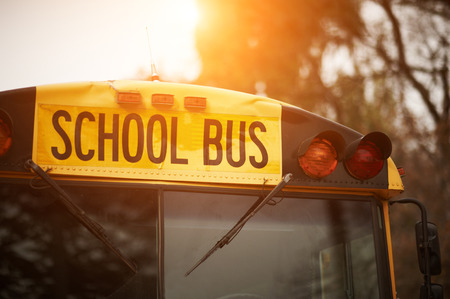LTFRB: School buses can resume operations if . . .

School bus. INQUIRER.net stock photo
MANILA, Philippines — After more than two years, the Land Transportation Franchising and Regulatory Board (LTFRB) allowed school transport services to resume operations this month along with the reopening of both private and public schools.
In a three-page memorandum circular dated July 28, the LTFRB cited the Department of Education Order No. 034 which sets August 22 as the start of classes. Classes in many private schools are set to resume even before Aug. 22.
The memorandum was signed by LTFRB chair Cheloy Garafil, and board members Riza Marie Paches and Mercy Jane Paras-Leynes.
It also pointed to the downgrading of the alert level status in most parts of the country to alert level 1, prompting the reopening of “pre-pandemic routes of different denominations” and resume operations with 100-percent seating capacity.
In allowing the resumption of school transport service operations, the LTFRB set some conditions, health protocols and guidelines for the services.
Article continues after this advertisementThe memorandum circular will cover those with valid certificates of public convenience (CPC) or provisional authority, and even those with CPCs that expired or will expire between March 31 and Aug. 31, but with pending application for extension of validity.
Article continues after this advertisementThe LTFRB said it would waive penalties for service units with pending confirmation from March 31 to Aug. 31.
“This is in recognition of the adverse financial impact of the COVID-19 pandemic on operators and drivers of school transport services,” the agency said on Friday.
Some of the protocols laid down by the LTFRB include the regular examination of drivers’ and conductors’ fitness by checking their body temperature and screening for any symptoms of COVID-19.
Regular disinfection of “frequently touched surfaces” of the vehicle should also be conducted.
More than 100 routes
The LTFRB also said that mandatory wearing of face masks should be observed all the time by drivers, conductors and passengers themselves.
As for the operating conditions, the agency said operators of the school services should also observe that their vehicles have secured windows that are steel grilled, seatbelts for all passengers, workable portable fire extinguisher, and portable “stop” and “go” signage that should be carried by the conductor when children cross the street, and that their drivers and conductors wear the prescribed uniform.
In a press statement, the LTFRB said it was also considering opening more than 100 routes, especially on the university belt area and other areas with a high volume of students.
The operations of school service units have been stopped since March 2020, when in-person classes were suspended due to the number of COVID-19 cases in the country.
RELATED STORIES